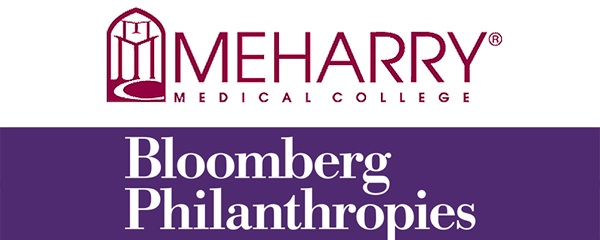Former New York City Mayor Michael Bloomberg awarded the Bloomberg Philanthropies of $34 million to Meharry Medical College to help increase the number of Black doctors in the U.S. by significantly reducing their debt burden. Over the next four years, the historic gift will provide scholarships for medical students with financial need, many of whom have faced increased financial pressures because of the COVID-19 pandemic.
Meharry Medical College is one of the black colleges supported by the Black College Fund which provides financial support to maintain solid, challenging academic programs; strong faculties; and well-equipped facilities.
Current Meharry School of Medicine students with financial need could be eligible for scholarships of up to $100,000 over four years under the gift. The grant also covers “wrap around” services, such as financial counseling for students and resources to track the program’s success.
Meharry was one of four historically black medical schools to receive grants announced by Bloomberg Philanthropies totaling $100 million today.
The grants are the first investment by Bloomberg Philanthropies’ Greenwood Initiative, a new effort to accelerate the pace of generational wealth accumulation for Black Americans and address systemic underinvestment in Black communities. The initiative was born out of a commitment Mayor Bloomberg made earlier this year during his campaign for U.S. President. Bloomberg Philanthropies will partner with leaders and organizations across the country to implement, scale and advocate for efforts that increase economic and social mobility—and ultimately create intergenerational wealth for Black people in America.
“COVID-19 has been especially devastating for the Black community, and the scarcity of Black doctors practicing in Black communities is one reason for it,” said Michael Bloomberg, founder of Bloomberg Philanthropies and Bloomberg LP. “More Black doctors will mean more Black lives saved and fewer health problems that limit economic opportunity. But right now, the burden of student debt and lack of financial aid means that the shortage of Black doctors could get even worse.
Currently only 5 percent of practicing physicians in the United States are Black, yet data shows that Black patients—who are almost three times more likely than white people to contract COVID-19 and twice as likely to die from it—have better outcomes when treated by Black doctors. Across the country, Black Americans are more likely than white Americans to die at nearly every stage of life. Experts cite a variety of factors contributing to this inequity, including pre-existing conditions and lack of access to trusted health care providers.
Bloomberg Philanthropies maintains that more Black doctors will lead to more Black lives saved in America, as well as a reduction in the health issues that end up suppressing economic opportunity in Black communities. Although Black doctors are more likely to serve minority patients, and in medically-underserved areas, the devastating economic impact of COVID-19 threatens to worsen existing disparities, potentially preventing current students with financial need from completing their degrees or forcing graduates to pick specialties that offer higher pay in the interest of paying off their medical school debt. Ultimately, the pandemic could slow the placement of Black doctors in communities with the most need and significantly limit the ability of historically Black medical schools—which have produced as many Black medical school graduates over the last 10 years as the top 10 non-HBCUs with the highest number of Black graduates—to meet increased demand for financial assistance.
excerpt from an article from Meharry Medical College website
One of seven apportioned giving opportunities of The United Methodist Church, the Black College Fund provides financial support to maintain solid, challenging academic programs; strong faculties; and well-equipped facilities at 11 United Methodist-related historically black colleges and universities. Please encourage your leaders and congregations to support the Black College Fund apportionment at 100 percent.





